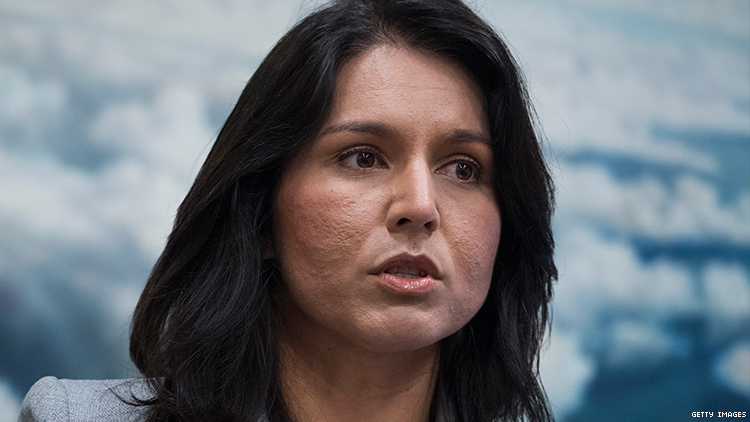Washington: Top US lawmakers have said that the escalating tension between Pakistan and India is ‘deeply alarming’ and have asked the two nuclear-armed countries to settle their differences through negotiations and not war.
Some prominent American think-tanks have also warned that Pakistan should dismantle terrorist groups in the country to de-escalate tensions or else it can spark an ‘unforeseen war’.
Democratic presidential aspirant Tulsi Gabbard said Wednesday, “To our friends in India and Pakistan: As nuclear powers, please remember it’s your responsibility to the global community to settle differences through negotiations — not war. In times like this, cool heads must prevail. The world is praying you will have the courage to work for peace.
Congressman Brad Sherman, Chairman of House Foreign Affairs Sub-committee on Asia, the Pacific, and Non-proliferation hoped that the two countries will exercise maximum restraint.
“We all hope that India and Pakistan will exercise maximum restraint during the current crisis. Diplomacy is the only path to resolve this conflict,” he pointed out.
Senator Ed Markey said the heightening tensions between Pakistan and India are ‘deeply alarming’. “These two nuclear-armed states must commit to resolving this crisis peacefully, and the US should stand ready to assist. We must not allow conventional tensions to go nuclear,” Markey informed.
Senator Chris Murphy, Ranking Member of the US Senate Foreign Relations Sub-committee on Near East, South Asia, Central Asia, and Counterterrorism, urged both India and Pakistan to convene emergency high-level talks to de-escalate tensions between them.
“The US should not abdicate our diplomatic role here, either. President Trump should quickly nominate a qualified ambassador to Pakistan who can help diffuse tensions,” added Murphy.
Some prominent American observers on South-Asian affairs said Wednesday that Pakistan needs to dismantle terrorist groups and end its support to such organisations to de-escalate tensions with India. They warned that the absence of Pakistan taking such an action can spark an ‘unforeseen war’.
“Pakistan Prime Minister Khan is absolutely correct when he says all wars are miscalculated, and no one knows where they lead to. And this is why Pakistan should dismantle every terrorist group in the country. They can spark an unforeseen war,” Bill Roggio, editor of ‘Long War Journal’ said.
“India and even the US had evidence of Lashkar-e-Taiba’s involvement in the 2008 Mumbai attacks. Pakistan has of course done nothing to dismantle its pet terrorist group. LeT thrives in Pakistan to this day,” he pointed out.
Jeff M Smith from the ‘Heritage Foundation’ disagreed with the view that the Pakistani retaliation made India look weak.
“Don’t agree with view that recent events make India look ‘weak’. Airstrike was a more robust response to the Pulwama attack than anyone anticipated,” tweeted Smith.
“I hope the world recognises if it wants restraint from India it needs a more credible plan for dismantling terror factories. Or we’ll be back here soon,” Smith added stating he supported India’s stand that Pakistan needs to act against terrorists.
Ronak D Desai, India Practice vice-chair at a prominent international law firm and expert at the Lakshmi Mittal South Asia Institute at Harvard University, said the US can create strategic space for India to de-escalate the ongoing crisis.
“Only the US can create this space by recognizing India’s legitimate concerns and applying pressure on Pakistan to not just release Wing Commander Abhinandan, but to also dismantle terror networks operating with impunity in the country,” he stated.
PTI

